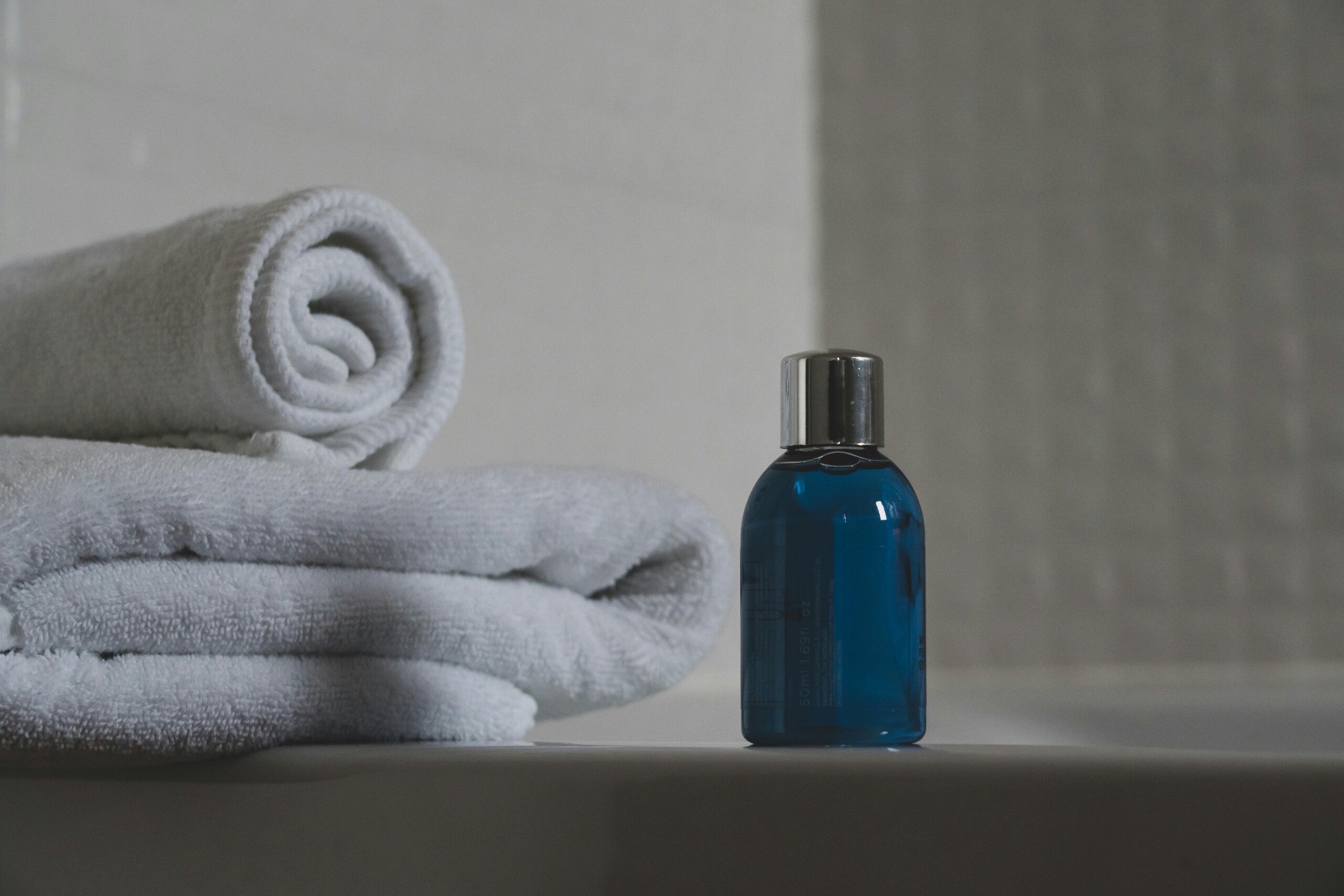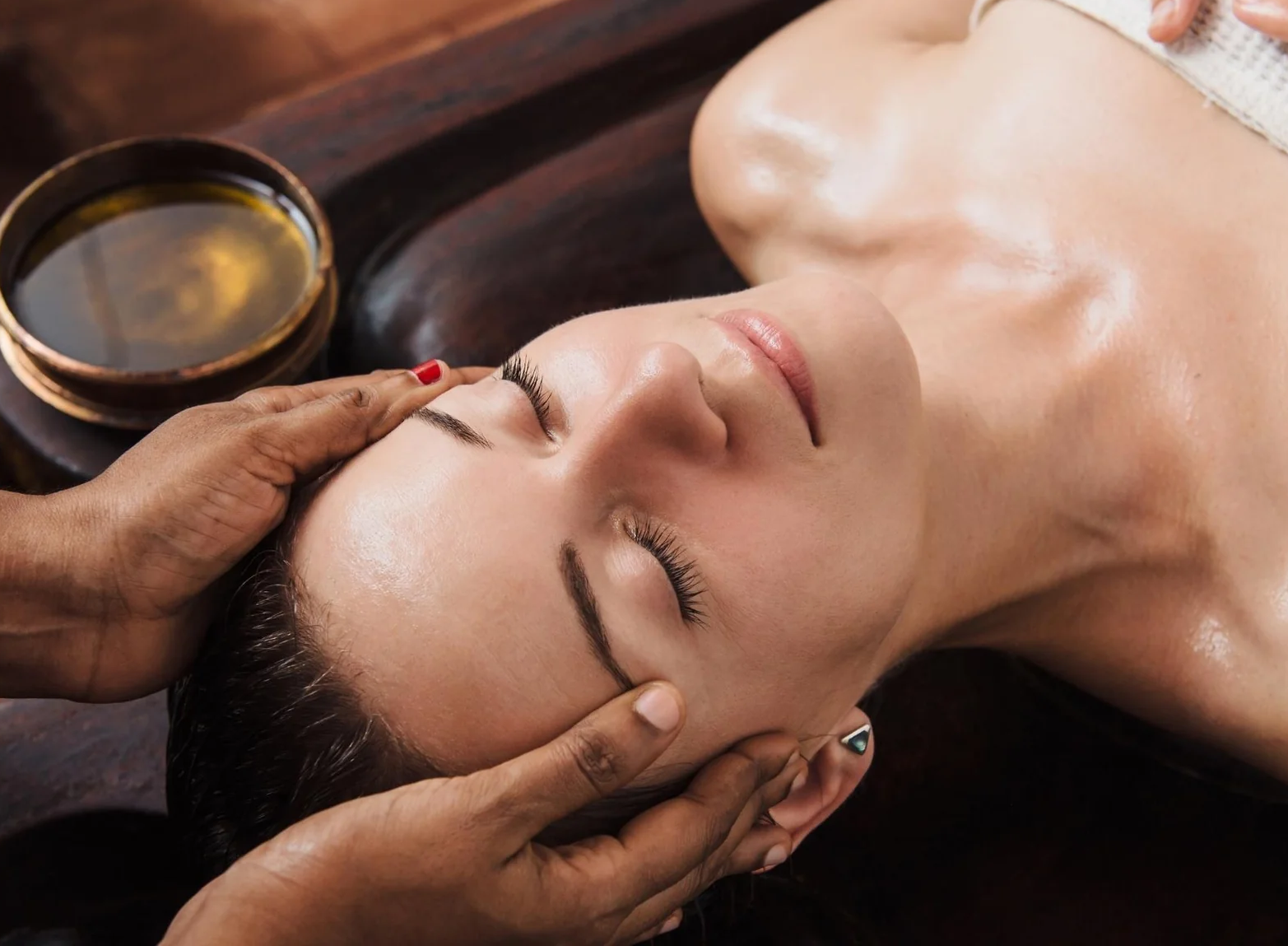Abhyanga, the traditional Ayurvedic oil massage, is one of the most revered practices in Ayurveda. Rooted in ancient wisdom, it involves the rhythmic application of warm, herbal oils over the body. This therapeutic ritual not only revitalizes the skin but penetrates deeply into the tissues, promoting detoxification, healing, and overall balance.
In this blog post, we’ll explore the profound benefits of Abhyanga and why it’s considered essential for rejuvenation in Ayurvedic wellness.
1. Deep Detoxification and Purification
The primary purpose of Abhyanga is to detoxify the body. According to Ayurveda, toxins (known as “Ama”) accumulate in the body due to improper digestion, stress, and environmental factors. These toxins obstruct the natural flow of energy (Prana) in the body, leading to imbalances and illness.
During an Abhyanga massage, herbal-infused oils are carefully selected based on an individual’s dosha (Vata, Pitta, or Kapha). These warm oils are massaged into the skin, allowing the medicinal herbs to penetrate deeply into the tissues. The oils help loosen toxins embedded in the body’s tissues and move them toward the digestive system, where they can be more easily eliminated. The process of removing these toxins is key to restoring the body’s natural balance and enhancing overall health.
2. Improved Circulation and Lymphatic Drainage
Abhyanga is known for its ability to stimulate circulation. The rhythmic strokes of the massage, combined with the warmth of the herbal oils, help to open up the body’s channels (Srotas), allowing for better blood flow. Enhanced circulation not only nourishes the tissues by delivering oxygen and essential nutrients but also assists in the removal of metabolic waste products.
Additionally, Abhyanga supports lymphatic drainage, which plays a critical role in the body’s immune system. By stimulating the lymphatic system, the massage helps the body eliminate toxins more efficiently, thereby improving immune function and overall vitality.
3. Nourishment for the Skin and Deep Tissues
Abhyanga is deeply nourishing, particularly for the skin. The herbal oils used in the massage are rich in antioxidants and essential nutrients, which rejuvenate the skin, making it soft, supple, and radiant. This practice is especially effective in balancing the dry, cold qualities of Vata dosha, which can often result in dry skin and premature aging.
The oil doesn’t just work on the surface level—it penetrates deeply into the muscles, joints, and tissues, providing lubrication and promoting healing from within. Regular practice of Abhyanga has been shown to slow down the aging process by preventing the degeneration of tissues, thus promoting longevity.
4. Calming the Nervous System and Reducing Stress
In today’s fast-paced world, stress and anxiety are common issues. Abhyanga is a powerful tool for calming the nervous system and reducing the impact of stress on the body and mind. The soothing, rhythmic nature of the massage, combined with the therapeutic properties of the oils, helps activate the parasympathetic nervous system (the body’s “rest and digest” mode), inducing a deep state of relaxation.
Abhyanga is especially effective for balancing Vata dosha, which is often responsible for nervous system imbalances, anxiety, and restlessness. After an Abhyanga massage, individuals often report feeling more grounded, centered, and mentally clear.
5. Improved Flexibility and Joint Health
Abhyanga is a boon for those suffering from joint stiffness, pain, or reduced mobility. The warm oil helps lubricate the joints, making movements smoother and more fluid. This is particularly beneficial for individuals with arthritis or other joint-related conditions.
The massage also helps in the removal of metabolic waste that may be lodged in the joints, leading to reduced inflammation and pain. For those practicing yoga or other physical activities, regular Abhyanga can help maintain flexibility and prevent injury.
6. Enhanced Sleep Quality
One of the most well-known benefits of Abhyanga is its ability to promote deep, restful sleep. The calming effects of the massage help quiet the mind and relax the body, creating the ideal conditions for falling asleep naturally. Regular practice can be highly effective in treating insomnia and other sleep disturbances.
The soothing touch and nourishing oils pacify the Vata dosha, which, when imbalanced, can cause sleep disorders, restlessness, and anxiety. By balancing Vata, Abhyanga promotes a sense of stability and calm, leading to better sleep quality.
7. Strengthening Immunity
In Ayurveda, it’s believed that good health is achieved when the body’s immune system (Ojas) is strong and balanced. Abhyanga plays a crucial role in strengthening immunity by promoting detoxification, improving circulation, and reducing stress—all of which contribute to a more resilient immune system.
The herbal oils used in the massage also have medicinal properties that boost the body’s ability to fight off infections and diseases. Over time, regular Abhyanga helps build a strong defense system, ensuring long-term health and vitality.
8. Hormonal Balance and Emotional Well-being
Hormonal imbalances can affect everything from mood to metabolism. Abhyanga has a profound impact on the endocrine system, helping to regulate hormones and restore balance. This can be especially beneficial for women going through menstruation, pregnancy, or menopause, as well as for those experiencing hormonal fluctuations due to stress or lifestyle factors.
On an emotional level, Abhyanga helps release stored tension and emotions from the body, promoting mental clarity and emotional well-being. The practice fosters a deep sense of connection between the mind and body, helping individuals feel more balanced and at peace.
9. Balancing the Doshas
One of the core principles of Ayurveda is the balance of the three doshas: Vata, Pitta, and Kapha. Each person has a unique constitution made up of these doshas, and an imbalance can lead to health issues. Abhyanga is a powerful way to balance the doshas, restoring harmony within the body and mind.
For those with an aggravated Vata dosha, Abhyanga’s warm, oily qualities are particularly grounding and soothing. Pitta types benefit from the cooling and calming effects of certain herbal oils, while Kapha types can experience rejuvenation and revitalization through stimulating massage techniques.
While Abhyanga offers countless benefits for individuals of all ages, it particularly benefits seniors seeking a holistic approach to health and rejuvenation. At our Senior Wellness Retreat, we incorporate Abhyanga to support joint mobility, improve circulation, and enhance emotional well-being, making it an ideal treatment for seniors looking to revitalize their bodies and minds. Combining Ayurvedic treatments, such as Abhyanga, with specialized wellness programs tailored for seniors, offers a unique opportunity to experience profound healing and rejuvenation.
Conclusion: Embrace the Healing Power of Abhyanga
Incorporating Abhyanga into your wellness routine can have transformative effects on your physical, mental, and emotional well-being. Whether you’re seeking detoxification, stress relief, or a deeper connection to yourself, this ancient Ayurvedic practice offers a comprehensive approach to health and rejuvenation. By regularly practicing Abhyanga, you’ll not only nourish your body but also nurture your mind and spirit, fostering a deeper sense of balance and inner peace.
If you’re ready to experience the profound healing benefits of Abhyanga, consider joining our Ayurvedic Wellness Retreat. Here, we combine traditional Ayurvedic practices, such as Abhyanga, with personalized care to help you achieve optimal health and well-being. Whether you’re attending for rejuvenation or as part of a senior wellness program, our retreat offers a holistic approach to health that will leave you feeling revitalized and renewed.


